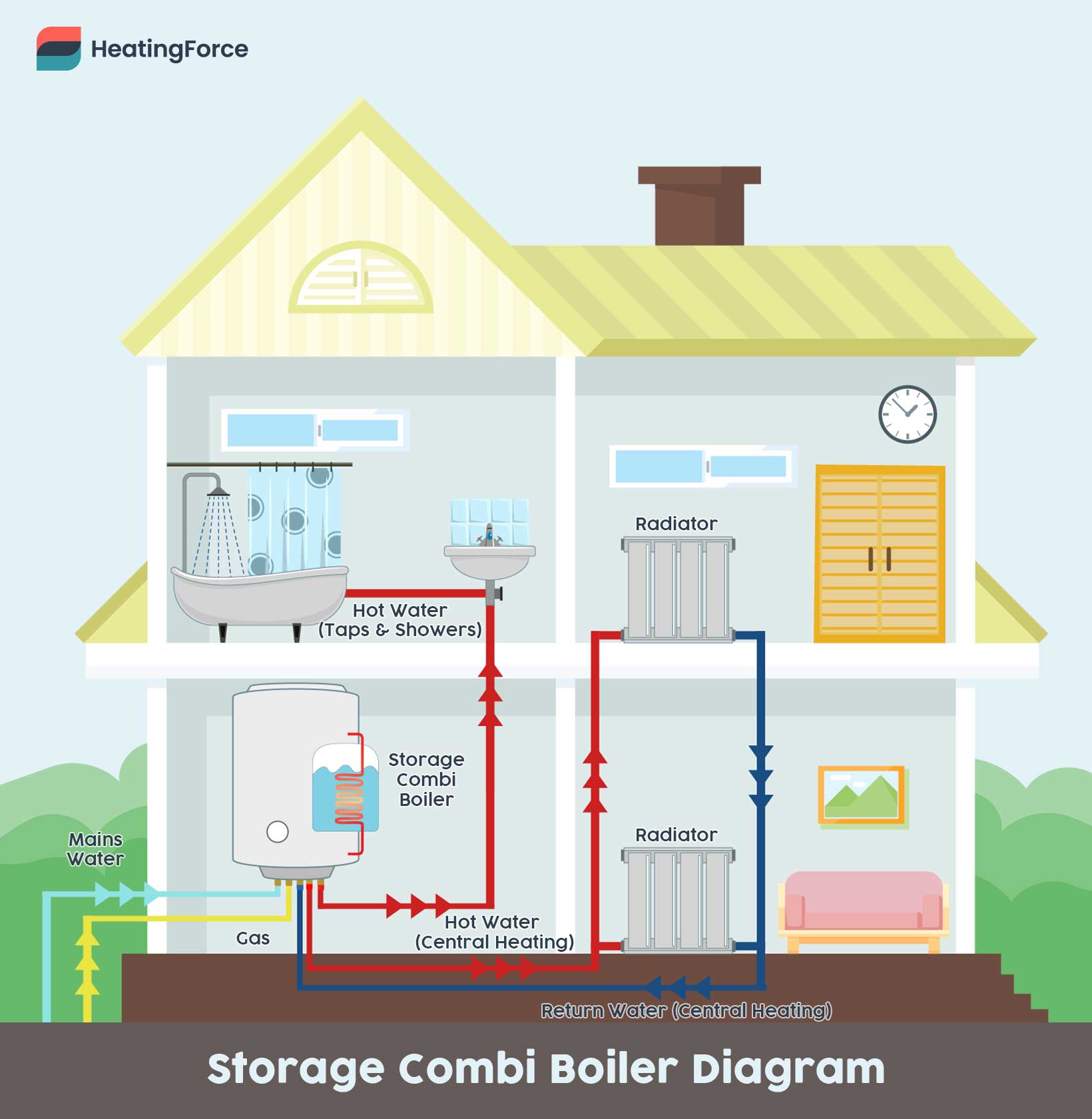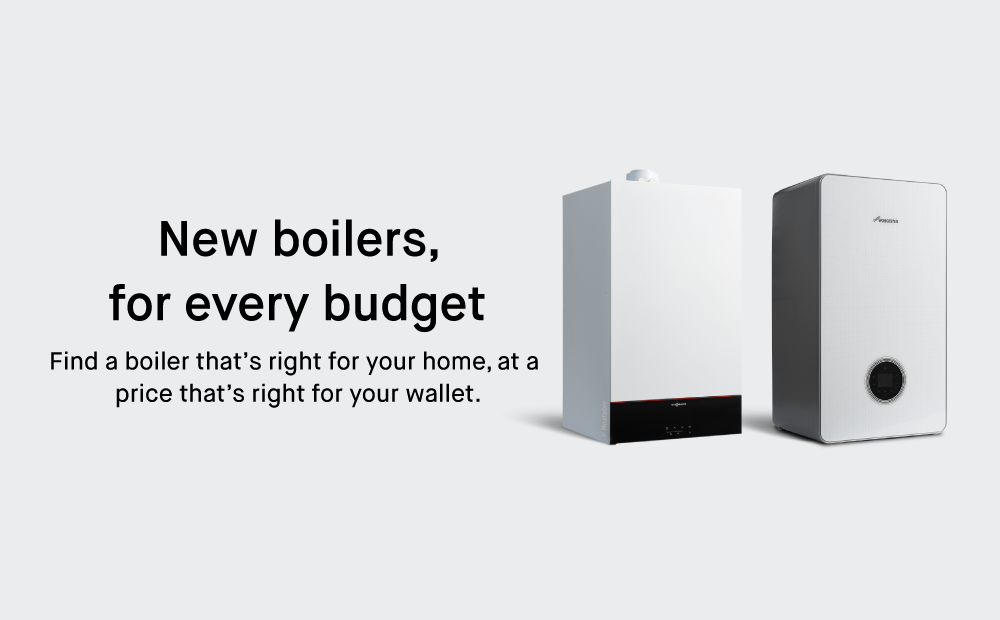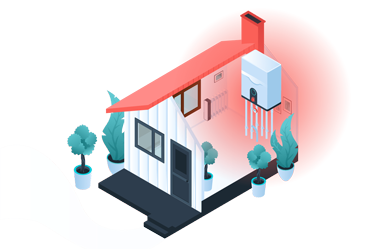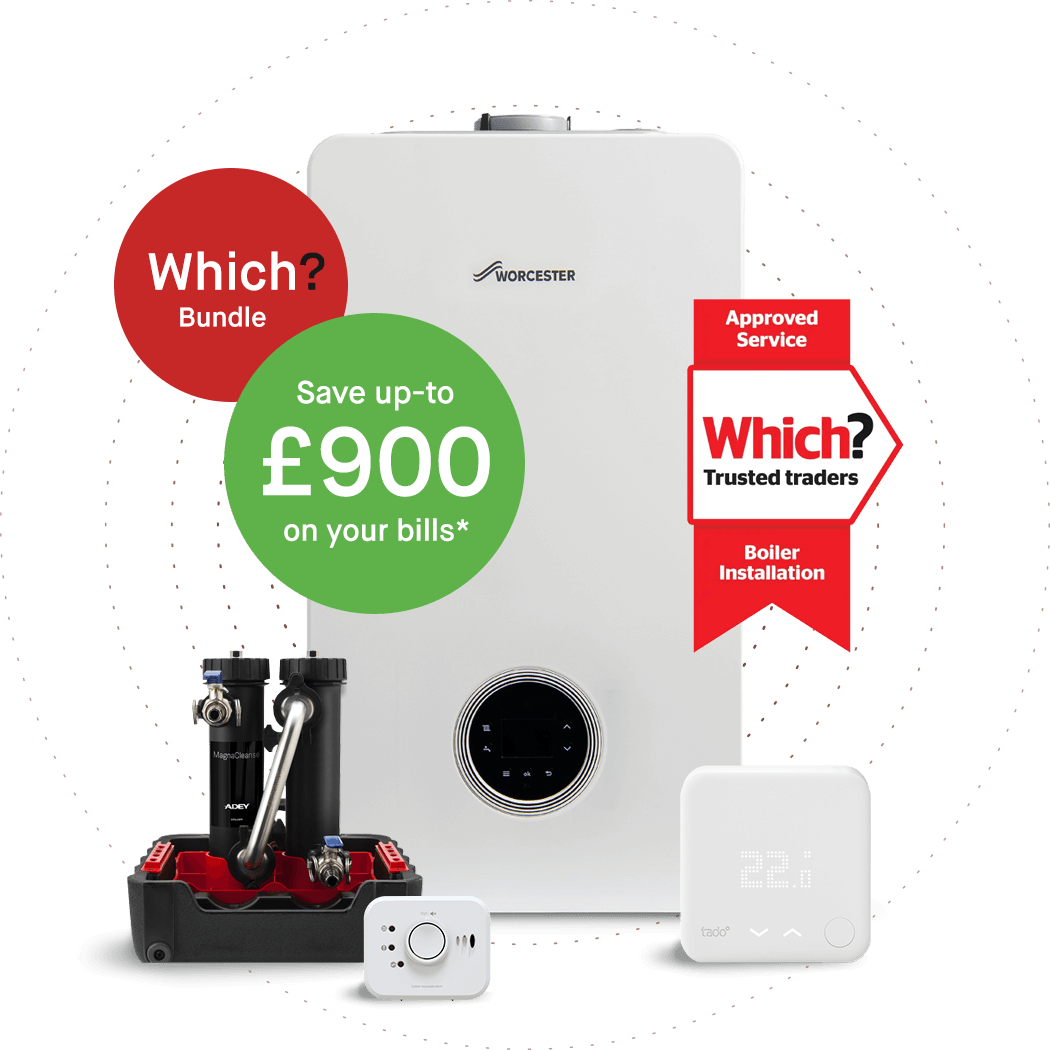Storage Combi Boiler Guide: Functionality, Suitability, Prices, and Alternatives
A storage combi boiler combines the high capacity of a system or regular boiler with the instant heating capabilities of a combi. A storage combi boiler contains a reserve of heated water that’s available any time you need more water than the mains pressure provides.

A storage combi boiler differs from a standard combi boiler because it has an internal hot water storage cylinder. Storage combis differ from system and regular boilers because they heat water directly from the cold mains via a heat exchanger and do not rely on external hot water tanks. The ability to heat water on demand and store it makes storage combis a practical compromise for mid-sized apartments with families who use lots of hot water simultaneously. In contrast, regular combis struggle to serve multiple running taps, whilst heat-only and system boilers have too large a footprint to fit into a typical apartment.
However, storage combi boilers don’t suit every household for two reasons. Firstly, storage combis cost more than normal combis, so they’re not ideal for the tightest of budgets. Secondly, storage combis are bulkier than regular combis. You may struggle to fit them if space is limited and you were hoping to install your new boiler in a cupboard.
Storage combi boilers come in sizes ranging from 19kW to 40kW. 24-34kW is the most common size range for storage combis, and it’s suitable for properties with 10-15 radiators, 2+ bathrooms, and 3-4 bedrooms. Larger storage combi boilers are available for properties with 15+ radiators, but it may make sense to consider a system or regular boiler if you’ve got a home this large.
Storage combi boilers cost £2,500 – £5,000 including installation. Premium models like the Vitodens 111-W cost £4,400 – £4,700 (fitted), while budget models like the ecoTec Plus Combi Store 938 can be installed for £2,500 – £3,000.
The three best storage combi boilers are the Viessmann Vitodens 111-W, the Viessmann Vitodens 222-F, and the Vaillant ecoTec Plus Combi Store 938. The Vitodens 111-W is a market-leading storage combi that commands a high price. The Vitodesn 222-W is a larger version of the 111-W. In contrast, the ecoTec 938 is a budget storage combi that’s powerful and efficient despite its lower price point.
Below is a detailed overview of storage combi boilers’ functionality, prices, suitability, and best available models.
What is a storage combi boiler?
A storage combi boiler is a type of boiler that produces hot water on demand whilst storing heated water internally for periods of high consumption.
The difference between a storage combi and a standard combi is that a combi boiler heats water directly from the cold mains but has no storage for the heated water. Meanwhile, a storage combi boiler keeps a reserve of hot water in its internal storage cylinder in addition to heating cold water directly from the mains.

A combi storage boiler works by heating mains water and storing it in an internal cylinder. Storage combis heat water from the cold mains by burning fuel (like gas or oil) and transferring the heat from that flame to the cold water via a heat exchanger. The storage combi boiler then deploys hot water to your taps or to your central heating system, depending on your commands, but the heating and domestic hot water never come into contact with each other. Some water collects in the internal storage tank, where it heats up and stays ready for use.
What are the components of a storage combi boiler?
The eight main components of a storage combi boiler are listed below.
- Heat exchanger: Combi boilers (including storage combis) typically have a primary and secondary heat exchanger. The primary heat exchanger transfers heat to the water circulating through the home’s radiators. The second heat exchanger (known as the “plate heat exchanger”) transfers heat from the heating water to the domestic water that’s destined for the home’s taps and showers. Manufacturers typically make heat exchangers from stainless steel but may also use aluminium, which is better for heat transfer but is less durable.
- Fan: The combustion fan blows fumes from the burning fuel into the flue and out of your home.
- Expansion vessel: The expansion vessel is a tank inside the boiler partitioned into hot water and air sections. Excess hot water flows into the hot water section, moving the partition and compressing the air section. The expansion vessel thus relieves excessive water pressure in your boiler system.
- Burner: The burner of a storage combi mixes the boiler’s fuel with air, and then combusts the mixture to generate heat.
- Control unit: The control unit comprises the Printed Circuit Board (PCB), which serves as the communication centre between various boiler components. The control unit integrates with the boiler’s user interface and is able to convert user and thermostat commands into the corresponding boiler functions.
- Circulation pump: A combi storage boiler contains a pump that keeps hot water circulating throughout the system.
- Hot water cylinder: The hot water cylinder is an internal storage tank that supplements hot water flow when you need a higher volume than the mains pressure is able to supply. A plate heat exchanger heats the cold water directly inside the tank.
- Internal coil: The internal coil carries central heating water through the hot water cylinder, thus allowing the storage combi’s reservoir of tap water to remain heated and ready for use.

Is a storage combi boiler different from a combi boiler?
Yes, a storage combi boiler is different from a combi boiler. The difference is that a standard combi boiler does not store hot water for use in response to high demand, whereas a storage combi does. This added water storage means that storage combis are better suited for households with higher water consumption than standard combi boilers.
Is a storage combi boiler different from a system boiler?
Yes, a storage combi boiler is different from a system boiler in two ways. Firstly, storage combi boilers heat water directly from the mains. In contrast, a system boiler relies solely on hot water stored in an external cylinder. Secondly, the storage combis’ water tank is internal. Both storage combi boilers and system boilers use hot water tanks to store hot water. However, storage combis’ tanks are internal, whilst system boilers rely on an external hot water cylinder.
No Fuss.
Get your fixed online price for a Which? approved boiler, installation included.
Should I get a storage combi boiler?
Whether you should get a storage combi boiler depends on your hot water demand, property size, and budget. Consider the three factors below when deciding whether you should get a storage combi.
- You live with several people: A storage boiler meets higher hot water demands than a standard combi, making it a better choice if you live with multiple people. A storage combi still does not support large households with excessive hot water consumption.
- You live in a small property: A storage boiler has a smaller profile than a system or regular boiler (since it doesn’t require external water storage facilities) but is slightly larger than a combi boiler, making it a good fit for smaller apartments. A storage combi boiler is suitable for small to medium-sized properties with up to 2 bathrooms, 1-4 bedrooms, and 10 – 20 radiators.
- You are budget-conscious: A storage boiler is cheaper than a system or regular boiler but slightly more expensive than a combi boiler, so it’s a good choice if you are budget-conscious but not strapped for cash.
What are the advantages of a storage combi boiler?
There are four advantages to a storage combi boiler. Firstly, a storage combi boiler produces an instant hot water supply as needed, heating water directly from the cold mains like a combi boiler. The mains water connection and instantaneous heating means you never exhaust the hot water supply. In contrast, regular and system boilers limit their owners’ hot water supply to the volume of the hot water cylinder, which takes a while to heat up after being depleted. Secondly, storage combis are able to meet a higher water demand than standard combi boilers. Storage combi boilers store hot water in their internal cylinder. A storage combi allows your family to run a shower and do the dishes at the same time without losing hot water pressure. This ability to store water means that storage combi boilers have higher flow rates than comparable combis. For example, the Viessmann Vitodens 111-W 32kW has a flow rate of 18.1 l/min, much higher than the 10.8 l/min of the Greenstar 4000 30kW combi boiler. This additional flow rate allows storage combi boilers to “punch above their weight” when supplying hot water to multiple users simultaneously. Thirdly, storage combi boilers are small and apartment-friendly because they are more compact than system and heat-only boilers. This smaller footprint means you’re able to fit storage combis into smaller apartments than you would a system or a heat-only boiler. This feature makes a storage combi boiler an excellent choice if you live in a modestly sized home with multiple people who may use the hot water simultaneously. Finally, storage combi boilers are cheaper than their system and heat-only counterparts. The lower cost means you get the hot water storage feature of system or regular boilers without paying the high price those boilers command.
What are the disadvantages of a storage combi boiler?
There are three disadvantages to storage combi boilers. Firstly, storage combis cost more than regular combination boilers. Storage combis cost more because their internal cylinder is an extra part that needs to be manufactured and integrated into the boiler’s mechanism. Secondly, storage combis have a larger footprint than regular combis because of their integral storage tanks. A slightly larger profile means storage combi boilers may not be suited to the smallest apartments. Thirdly, storage combis are unable to maintain as large a hot water reserve as system and conventional boilers. So, a storage combi boiler may not work for larger households where many people use the hot water simultaneously.
What size storage combi boiler should I get?
The three factors below determine what size storage combi boiler you should get.
- Quantity of radiators: You will need a larger storage combi boiler if you have a property with more radiators. A 24kw – 34kW storage combi boiler should be able to support 10-15 radiators. Properties with 15+ radiators may need a larger storage combi boiler or even a system or regular boiler.
- Quantity of bathrooms: Bathrooms use hot water when occupants take showers or use the sink. A 24kW -34 kW storage combi boiler can support a property with 1 bathroom. Larger properties with 2+ bathrooms need a storage combi boiler with 35kW or more.
- Number of bedrooms: The more bedrooms you have, the more capacity you’ll need to accommodate the water usage of each occupant. A small property with 1-2 bedrooms typically needs a storage combi boiler with a 24-27kw capacity. A medium property with 2-4 bedrooms will need a 28kW – 34kW storage combi boiler. Large properties with 5+ bedrooms will need a boiler with at least 35kW capacity. Considering a system or regular boiler at this size may be best.
How much do storage combi boilers cost?
Storage combi boilers cost between £2,500 and £5,000, including installation. Higher-end models, like the Viessmann Vitodens 111-W, have an installation cost of £4,400 – £4,700, while more economical options, like the Vaillant ecoTec Plus Combi Store 938, cost between £2,500 and £3,000.
Heatable’s online boiler calculator offers a straightforward way to get a fixed-price, online quote on a storage combi. All you have to do is answer several anonymous questions about your property, and Heatable will recommend a range of suitable boilers along with reasonably priced quotes. Heatable do not operate a physical storefront, and they pass their savings on to you to keep their prices low and stay competitive.

What are the best storage combi boilers?
The best storage combi boilers are made by Viessmann and Vaillant, two of the UK’s most trusted boiler brands. Below are the three best storage combi models in 2026.
- Viessmann Vitodens 111-W: The Vitodens 111-W is a market-leading combi storage boiler in 25kW and 32kW models.
- Viessmann Vitodens 222-F: The Vitodens 222-F is a larger version of the 111-W that goes up to 35kW in output.
- Vaillant ecoTec Plus Combi Store 938: The Vaillant ecoTec Plus 938 is a more budget-friendly competitor to the Vitodens models that comes with 38kW of output.
The following table lists the specifications for the Viessmann Vitodens 111-W, the Viessmann Vitodens 222-F, and the Vaillant ecoTec Plus Combi Store 938.
| Viessmann Vitodens 111-W | Viessmann Vitodens 222-F | Vaillant ecoTec Plus Combi Store 938 | |
| Height (mm) | 950 | 1625 | 720 |
| Depth (mm) | 600 | 595 | 440 |
| Width (mm) | 500 | 600 | 624 |
| Flow Rate | 17l/min – 18.1 l/min | 19 l/min – 35 l/min | 15.9 l/min |
| Fuel Type | Gas, 20% Hydrogen Blend | Gas | Gas |
| Energy efficiency | A, 94% SSEE | A, 95% AFUE | A, 89.3% SEDBUK SAP Seasonal Efficiency |
| Price Range | £4,400 – £4,700 | £3,700 – £4,500 | £2,500 – £3,000 |
| Sizes | 25kW – 32kW | 19kW – 35kW | 38kW |
| Warranty | 7 years | 7 years | 10 years |
Viessmann Vitodens 111-W
The Viessmann Vitodens 111-W is a technologically advanced combi storage boiler with enough capacity to support most residential properties.
There are three advantages to the Vitodens 111-W. Firstly, it uses the most advanced technology to run at 94% energy efficiency as one of the most efficient boilers on the market. Secondly, Viessmann made the Viodens 111-W from high-quality stainless steel parts that ensure a long life with minimal repairs. Thirdly, the Vitodens 111-W is hydrogen-enabled, meaning you can stay ahead of the curve as the market transitions to more hydrogen-powered boilers.
There are two disadvantages to the Vitodens 111-W. Firstly, the boiler’s 7-year warranty is not as impressive as the 10-12-year warranties offered by Viessmann’s main competitor, Worcester Bosch. Secondly, the Vitodens 111-W does not provide a size that would suit smaller properties. It is possible to get a 10-year warranty on the Vitodens 111-W by getting the boiler installed with Heatable, who offer a 10 year on all the boilers they install.
Viessmann Vitodens 222-F
The Viessmann Vitodens 222-F is a higher-capacity, floor-standing alternative to the Vitodens 111-W. The Vitdens 222-F still delivers durability and energy efficiency while offering a higher capacity than the 111-W.
There are four significant advantages of the Vitodens 222-F. Firstly, the Vitodens 222-F is well-made from durable, stainless steel parts like the Vitodens 222-F. Secondly, the Vitodens 222-F offers the same efficiency-boosting technology as the Vitodens 111-W. Third, the Vitodens 222-F support larger properties with 20 radiators and 2-3 bathrooms. Finally, the 222-F’s profile allows it to keep a massive 100-litre hot water cylinder.
There are two disadvantages to the Vitodens 222-F. The first disadvantage is that the Vitodens 222-F takes up a lot of floor space and is poorly suited to a small apartment. The second disadvantage is that the Vitodens 222-F comes with only a 7-year warranty, shorter than the 10-12-warranties offered by Worcester Bosch.
Vaillant ecoTec Plus 938
The Vaillant ecoTec Plus 938 is an economical and environmentally-friendly storage combi that doesn’t compromise on capacity with 20 l/min of hot water and a heating capacity of 30kW.
There are three advantages to the Vaillant ecoTec Plus 938. Firstly, the Vaillant ecoTec Plus 938 delivers an “A” energy efficiency grade with an SAP seasonal efficiency of 89.3%, saving you money on your fuel bill. Secondly, the ecoTEc Plus 938 connects to your smartphone or smart device via Vaillant’s vSmart app, allowing you to control your heating while in and out of your home. Thirdly, the Vaillant ecoTec Plus 938 is at a lower price point than the Viessmann combi storage boiler models at just £2,500 to £3,000 for complete installation. Finally, the ecoTec Plus 938 has a 10-year standard warranty when using a Valiant-certified installer.
There are two disadvantages of the Vaillant ecoTec Plus 938. Firstly, it lacks some of the more advanced technical features of the Vitodens 111-W and the Vitodens 222-F, resulting in slightly lower energy efficiency. Secondly, the Vaillant ecoTec Plus delivers a lower flow rate than both Vitodens models at 15.9 l/min despite having a larger output size of 38kW.

